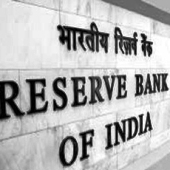
Fuel supplies to Mauritius, which sources its entire requirement of petrol, diesel and jet fuel from India, may be disrupted following RBI clamp down on the main conduit the Indian companies use to pay for Iranian oil.
The Reserve Bank of India's rather sudden and unilateral decision to discontinue the Asian Clearing Union, a move that effectively stops settlements in dollars and the Euro, will most impact Mangalore Refinery, which sources 60 per cent of its crude needs from Iran.
MRPL supplies Mauritius' entire requirement of 1,00,000 tons of petrol, 3,50,000 tons of diesel and 2,70,000 tons of jet fuel annually by processing Iranian crude oil.
The company has written to RBI warning of disruption in these supplies due to its move on Iran, sources privy to the development said.
Its three-year contract to export 1.1 million tons of product annually to Mauritius has been finalised based on crude supply arrangements from Iran.
"Non-availability of Iranian crude oil would result in supply disruption to Mauritius and the entire Mauritius may come to stand still as they operate with a very low level of inventory," a source quoted MRPL's letter to RBI.
MRPL is India's largest importer of Iranian crude oil at 7.5 million tons per annum. Iran is India's second largest crude oil supplier after Saudi Arabia.
It sold 21.3 million tons of crude oil to India in 2009-10.
So far supplies from Iran have not been disrupted as the Islamic republic has agreed to sell crude oil on credit pending resolution
of the gridlock, sources said, adding RBI had taken the decision to scrap the ACU without putting in place an alternate payment mechanism and without consulting importers.
Neither United Nations nor US sanctions prohibit crude oil purchase from Iran. European Union, through which payments till last month were being routed, had only asked for certification of commodity imported from Iran using Euros.
MRPL, source said, asked RBI to issue certification of crude oil imports as per the State Bank of India-approved format to meet the requirement of Deutsche Bundes Bank, the central bank of Europe, for the purpose.
Besides guaranteeing such large volumes annually, Iran also gives 90 days credit period for payments for crude imports as opposed to global practice of 30 days credit.
If such large volumes are stopped, India will be forced to tap the expensive spot market to meet the deficit, they said.
MRPL and other Iranian crude importers -- Indian Oil Corp, Hindustan Petroleum and private sector Essar Oil -- want an alternative mechanism for settlement of payments against imports of crude oil from Iran to be put in place immediately.
Besides MRPL, IOC and HPCL import 3 million tons each and Essar imports about 5 million tons of crude oil.
